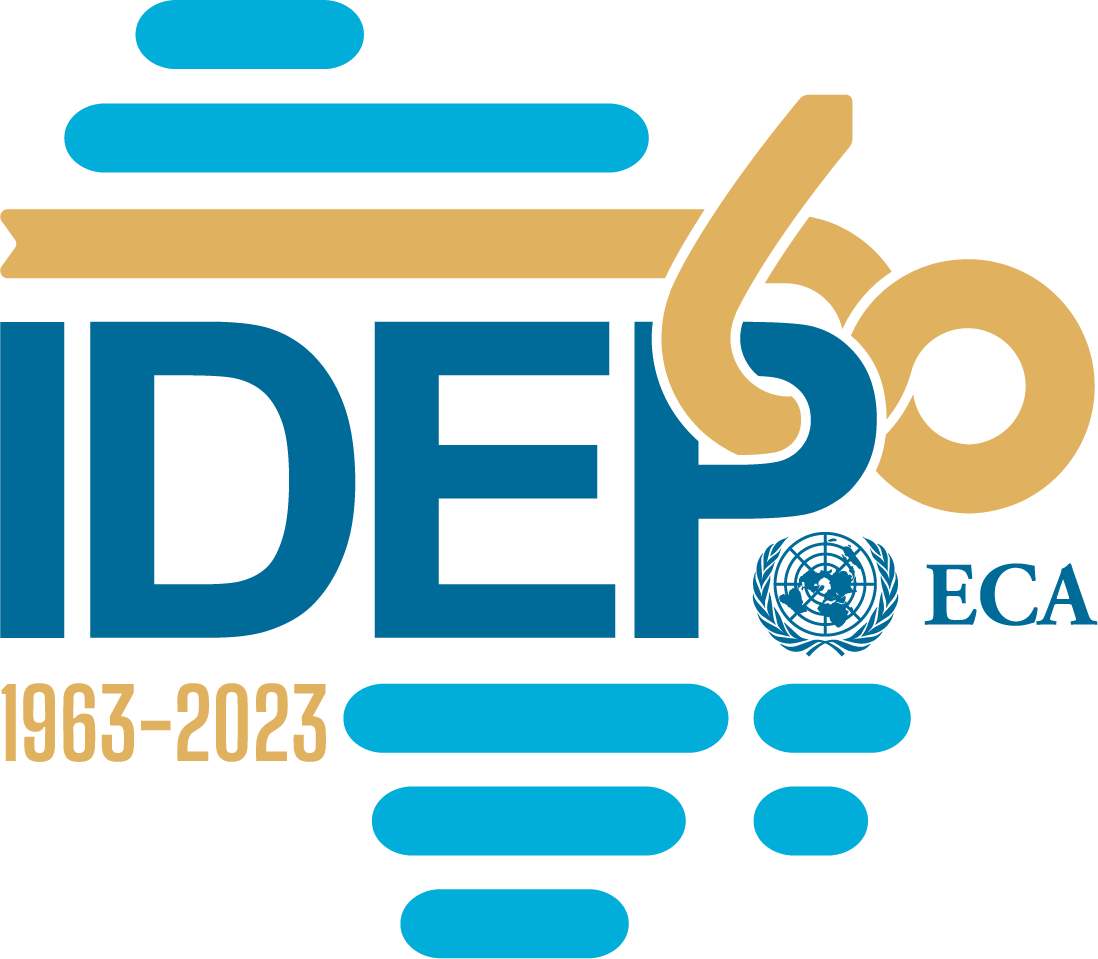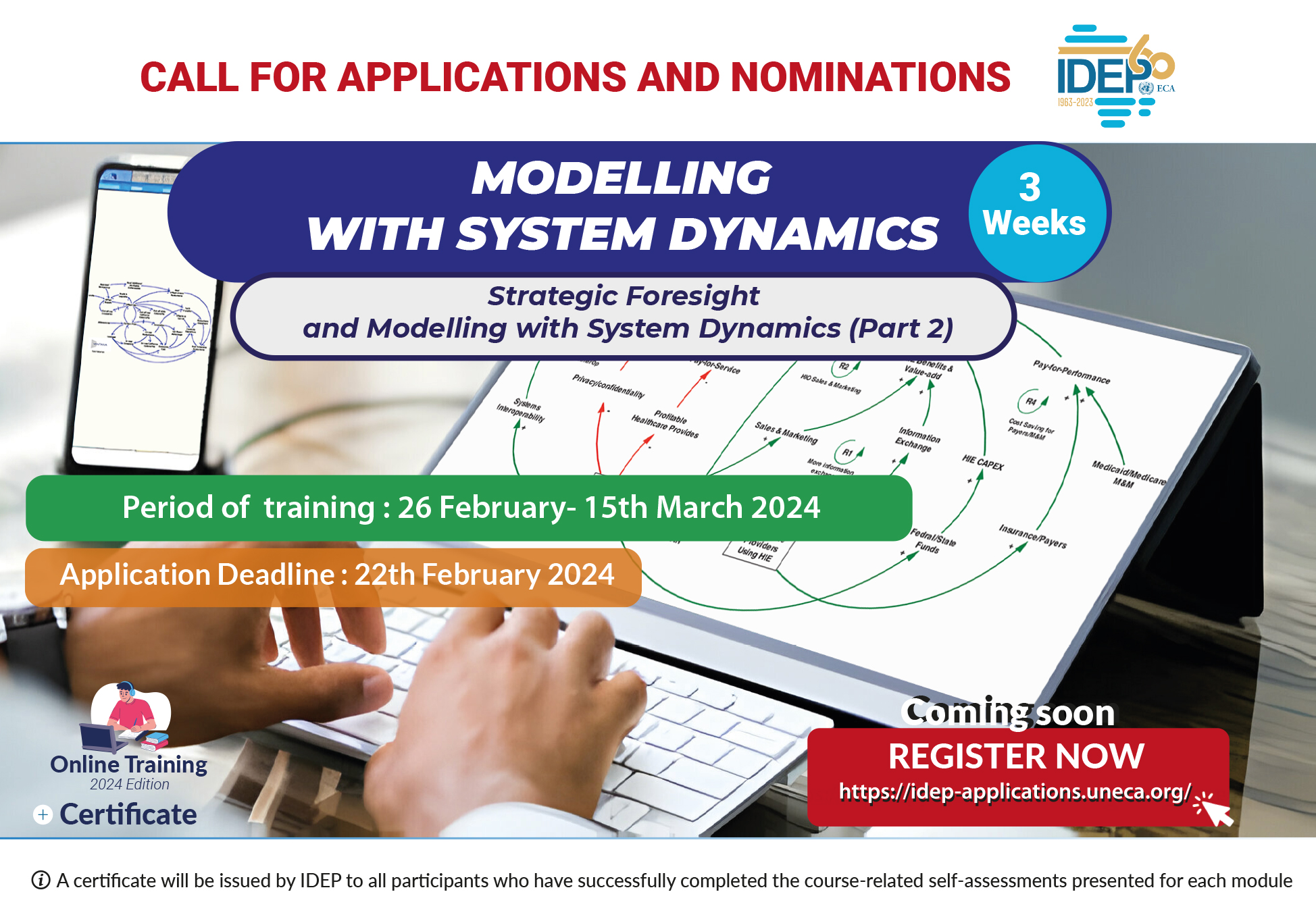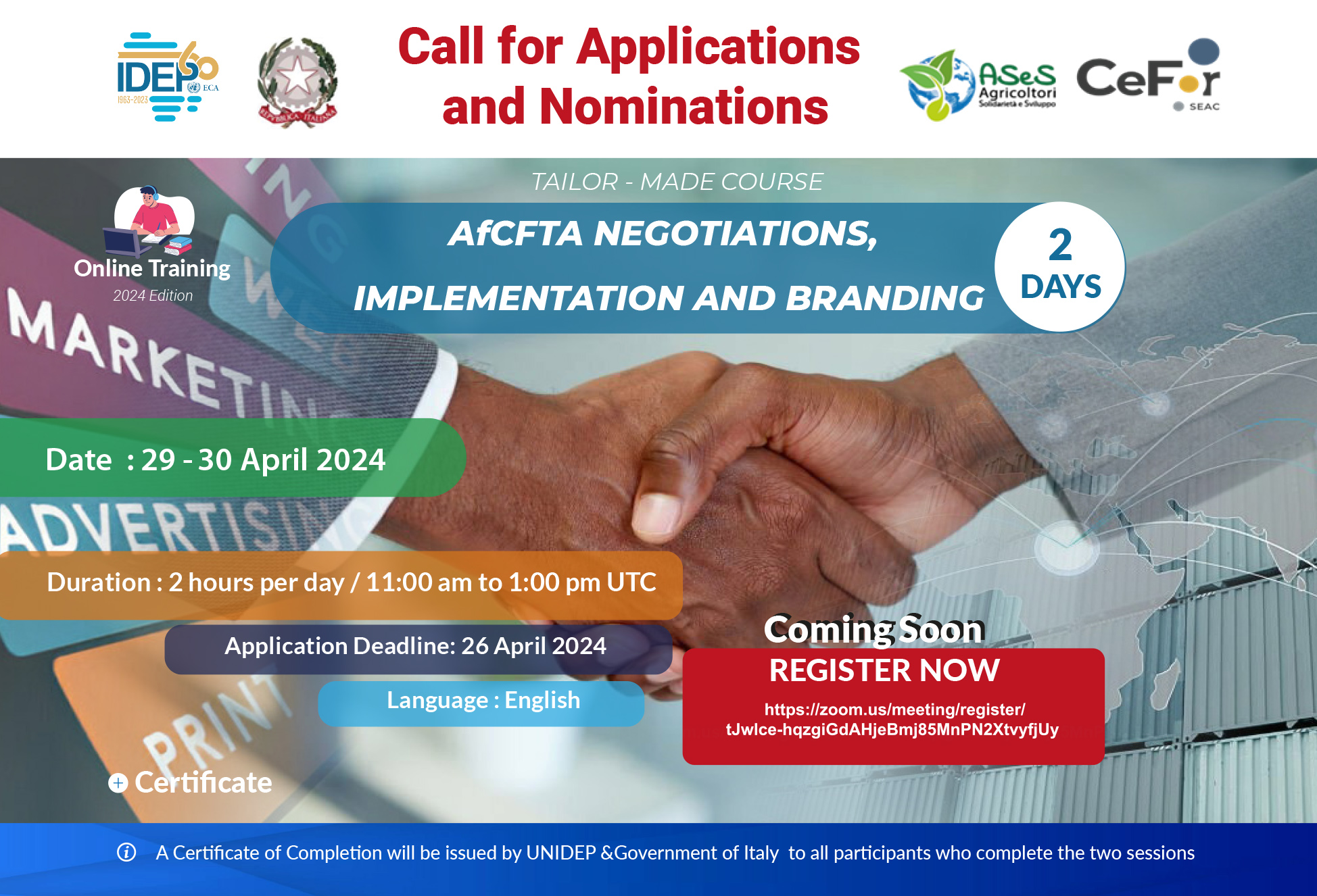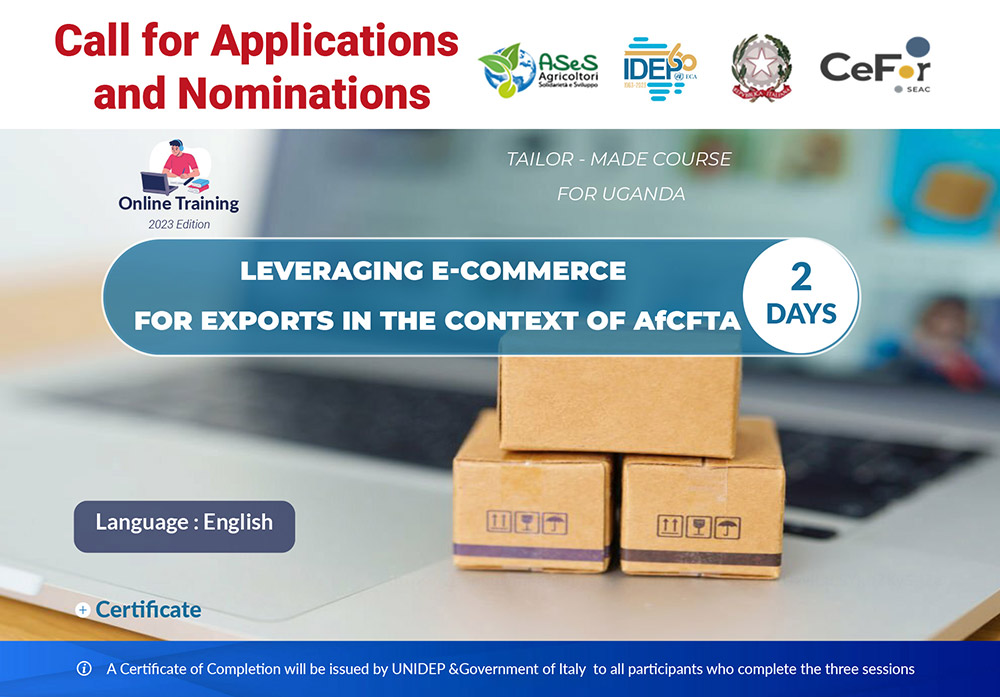MODELLING WITH SYSTEM DYNAMICS
Announcement in Brief
|
Programme Rationale
The United Nations sustainable development 2030 Agenda was adopted in 2015 by member states. With 17 goals, 169 targets and 231 indicators, it provides a framework for national and global development policies. In addition, it is anchored in human rights. Prior to the adoption of Sustainable Development Goals (SDGs), Millenium Development Goals (MDGs) were prevailing from 2000 to 2015. SDGs are different from MDGs as they are more universal, transformative, comprehensive, and inclusive. However, most SDGs are off track in 2023. The SDGs Report 2023 reveals that only 15% of SDGs are on track. Under current trends by 2030, 575 million people will still be living in extreme poverty; 84 million children and youth will be out of school and 300 million students will lack basic numeracy/literacy skills among others. As far as gender equality is concerned, there is still a lot of work to be done. Conflicts and wars inflict a devastating toll on SDGs as over 108 million people worldwide have been forcibly displaced from their homes as of December 2022, 2.5 times the number a decade ago.
Recent global shocks such as COVID-19 pandemic and the conflict between Ukraine and Russia have challenged the implementation of ongoing national, regional, and global development agendas. This has led to a common reflection within the United Nations on how member states can be capacitated to navigate the complexities of ongoing multi-crises environment and shift from emergency responses to shocks, to proactive development planning. This necessitates a good understanding of potential, probable, and preferable futures to inform current actions.
In 2021, the report of the UN Secretary-General (UN SG), Our Common Agenda, called for a Summit of the Future to forge a new global consensus on readying ourselves for a future that is rife with risks but also opportunities. The Summit of the Future to be held on 22-23 September 2024 is a once-in-a generation opportunity to enhance cooperation on critical challenges and address gaps in global governance, reaffirm existing commitments including the Sustainable Development Goals (SDGs) and the United Nations Charter, and move towards a reinvigorated multilateral system that is better positioned to positively impact peoples’ lives. In this complex environment, the UN SG has released UN 2.0, a vision of a “modern United Nations system, rejuvenated by a forward-thinking culture, and empowered by cutting-edge skills fit for the twenty-first century”. The UN 2.0 is a quintet of modern skills that have tremendous potential to enhance the work of United Nations entities in support of Member States: 1) data expertise, 2) innovation capacity, 3) digital expertise, 4) strategic foresight and 5) behavioural science.
Objectives
This course aims to empower learners by providing comprehensive insights into:
- Grasping the practical applications of systems thinking in complex systems and mastering tools like causal loop diagrams.
- Acquiring proficiency in the four key pillars of System Dynamics (SD) and understanding the SD language, specifically focusing on stock and flow concepts.
- Developing the skills to construct a basic simulation model utilizing System Dynamics principles, employing Stella Architect as a practical tool.





